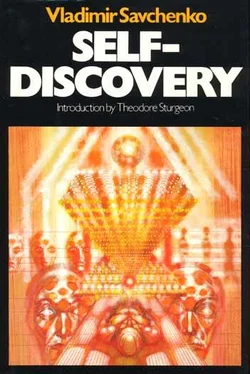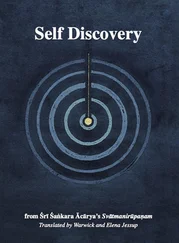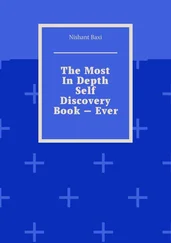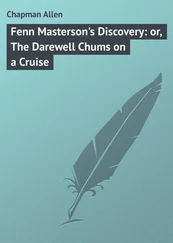Vladimir Savchenko - Self-discovery
Здесь есть возможность читать онлайн «Vladimir Savchenko - Self-discovery» весь текст электронной книги совершенно бесплатно (целиком полную версию без сокращений). В некоторых случаях можно слушать аудио, скачать через торрент в формате fb2 и присутствует краткое содержание. Город: NEW YORK — LONDON, Год выпуска: 1979, Издательство: MACMILLAN PUBLISHING CO., INC; COLLIER MACMILLAN PUBLISHERS, Жанр: Фантастика и фэнтези, на английском языке. Описание произведения, (предисловие) а так же отзывы посетителей доступны на портале библиотеки ЛибКат.
- Название:Self-discovery
- Автор:
- Издательство:MACMILLAN PUBLISHING CO., INC; COLLIER MACMILLAN PUBLISHERS
- Жанр:
- Год:1979
- Город:NEW YORK — LONDON
- ISBN:нет данных
- Рейтинг книги:3 / 5. Голосов: 1
-
Избранное:Добавить в избранное
- Отзывы:
-
Ваша оценка:
- 60
- 1
- 2
- 3
- 4
- 5
Self-discovery: краткое содержание, описание и аннотация
Предлагаем к чтению аннотацию, описание, краткое содержание или предисловие (зависит от того, что написал сам автор книги «Self-discovery»). Если вы не нашли необходимую информацию о книге — напишите в комментариях, мы постараемся отыскать её.
Self-discovery — читать онлайн бесплатно полную книгу (весь текст) целиком
Ниже представлен текст книги, разбитый по страницам. Система сохранения места последней прочитанной страницы, позволяет с удобством читать онлайн бесплатно книгу «Self-discovery», без необходимости каждый раз заново искать на чём Вы остановились. Поставьте закладку, и сможете в любой момент перейти на страницу, на которой закончили чтение.
Интервал:
Закладка:
I have another justification: we have to think not only about our research but also about defending the correct application of our discovery some day. And we don’t yet know how to do that. We have to learn.
The hell with careful justification! I mean am I alive in this world or is it only my imagination?
May 22. It all began normally enough. A small but impressive audience gathered in the hall of the construction bureau. Harry Haritonovich put up several sheets of oaktag with graphs and charts on the board, struck a picturesque pose next to them and delivered the usual twenty — minute talk. The audience listened with the usual discomfort. Some had no idea what he was talking about; others understood some of it; and still others understood it all: just what this Hilobok was, and what his dissertation was on, and why he kept it secret. But all those present thought glumly that it was none of their business, and really, that they could not cast the first stone — the usual sleepy thoughts that permit thousands of inept and sneaky louts into science.
Harry finished. The chairman read critical response to the work. The response was good (but who would submit unfavorable ones to his dissertation defense?). The only serious unexpected thing was that Arkady Arkadievich had written a response to the work, too. Then the official opponent took the stage. Everyone knows what an official opponent does: in order to earn his name, he notes several inconsistencies, several incomplete thoughts, and “yet in sum total the work corresponds… the author is deserving of….” Well, I won’t lie about this one: the opponent from Moscow was a highly qualified man and he mocked all the propositions of the dissertation and made it clear that he could expose the whole thing, but he did it so carefully and subtly that probably even Harry didn’t see it. “Yet in sum total the work deserves….”
And finally: “Who would like to speak?” Usually by this time everyone is disgusted by the proceedings; no one wants anything; the candidate thanks everyone — and it’s over.
Laboratory head V. Krivoshein breathed in and out deeply (by then I realized how much trouble this would cause) and raised his hand. Harry Haritonovich was unpleasantly surprised. I spoke twenty minutes, as he had, and in unfolding my point of view I handed the council members journals, magazines, monographs, brochures, and so on that contained the results Hilobok was defending without any mention of him. Then I re — created his circuit for… never mind for what, particularly since its only redeeming feature was its “originality,” and proved that the circuit would not work in the frequencies of the required range. There was a hubbub in the hall.
Then appeared candidate of sciences V. Ivanov, who had specially made the trip from Leningrad (not without a phone call from me). He clarified the borrowed data and took apart the “original” part of the dissertation; Valery’s speech was full of erudition and subtle humor. The audience grew noisier — and then it began!
My old friend Zhalbek Balbekovich Pshembakov tried to find out from Harry how was it that in circuit number two… it’s not worth writing about either. Hilobok didn’t know how it was, but he tried to get away with some bull and babble. Then the other colleagues of the construction bureau entered the fray. The last speaker was the chief engineer, a professor and Nobel Prize winner (I won’t mention his name in this context). “I had the feeling from the first that there was something wrong here,” he began.
So the first form didn’t help Hilobok; they squashed his dissertation like God can squash a turtle! Harry was a pitiful sight. Everyone was going off to his office and he was taking down his magnificent displays, and the stiff oaktag rolled up and hit him in the mustache. I went over to help.
“No, thank you,” Hilobok muttered. “Are you satisfied? You don’t write anything and you don’t let anyone else do it, either. It’s an easy life. Valentin Vasilyevich, nature has endowed you with certain gifts….”
“Sure, it’s easy! My salary is half of yours, and my vacation time, too. And I’m swamped with work and responsibilities.”
“You add to your worries unnecessarily. Why did you have to get involved in this?” Harry, rolling up his displays, gave me a threatening and angry look. “You have to think about the institute, not just about yourself and me. Well, this isn’t the place to talk about it.”
So that’s the ticket. Well, it doesn’t matter. I feel wonderful now. As though I had done something that was infinitely more valuable and meaningful than even our discovery: I squashed a viper. That means it’s possible. And not as terrible as I had expected.
Now I’m not so worried about our work’s future. Problems like this can be surmounted, too.
“But it did have an effect on his work,” muttered Onisimov — Krivoshein, watching the computer — womb. “Everything has an effect on the work.”
May 29. Today I was called onto Azarov’s thick carpet. He has just gotten back from a trip.
“So you realize what you’ve done?”
“But, Arkady Arkadievich, the dissertation — “
“We’re not talking about Harry Haritonovich’s dissertation, but about your behavior! You’ve undermined the institute’s prestige, and in no small way!”
“I expressed my opinion.”
“Yes, but where? How? Is it so difficult to comprehend that in another organization you are not simply an engineer trying to even a scholarly score with someone (well, Harry told his side!) but a representative of the Institute of Systemology! Why didn’t you express your opinion at the preliminary defense?”
“I didn’t know about it.”
“Nevertheless you could have told it to my replacement after the defense. It would have been taken into account!”
(He’s talking about Voltampernov — a likely story!)
“It wouldn’t have been taken into account.”
“I see we won’t reach an agreement. What are your plans for the future?”
“I don’t intend to resign.”
“I’m not asking you to. But it seems to me that you’re not ready to head a laboratory. A scientist working in a collective must bear the good of the collective in mind and at any rate, certainly not deal it any death blows by his behavior. I imagine that you will have trouble, at the next qualifying session, passing to lab head. That’s all. I won’t keep you.”
So that’s how it is. The whole institute is abuzz with turkey gobbles: “An engineer against a candidate! Keeping him from his doctorate!” Thanks to Harry everybody thinks that I was trying to settle a score with him. They’re dragging out my old sins: the chewing out, the accident in Ivanov’s lab (Matyushin, the head janitor, is planning to sue me for damages). They realized that I haven’t turned in an annual report on my project, even though topic 154 isn’t over until this year. They say that a commission to check on the lab’s work should be set up.
My enemies shout. My friends whisper carefully, looking over their shoulders: “You really gave it to Hilobok. The jerk deserves it. Well, they’ll get you now.” And they suggest where I should tranfer. “Why don’t you intercede?” “Well, you see….” Even good old Fenya Zagrebnyak just spreads his hands apart. “What can I do? It’s not in my field.”
A narrow specialist has a lousy life. Well — fed, secure, but lousy. All his interests are concentrated on elements of passive memory, say, and not on any old elements but only on cryotron elements, and only on film cryotrons and only on those made of lead — tin films. The worker, the farmer, the technician, the broad — based engineer, the teacher, and even the office worker can apply his knowledge and skills to many activities, enterprises, and companies, but there are only two or three institutes in the whole Soviet Union studying those damned cryotrons. What can poor Fedya do? He has to sit there and not make waves. In effect, a narrow speciality is a means of self — enslavement.
Читать дальшеИнтервал:
Закладка:
Похожие книги на «Self-discovery»
Представляем Вашему вниманию похожие книги на «Self-discovery» списком для выбора. Мы отобрали схожую по названию и смыслу литературу в надежде предоставить читателям больше вариантов отыскать новые, интересные, ещё непрочитанные произведения.
Обсуждение, отзывы о книге «Self-discovery» и просто собственные мнения читателей. Оставьте ваши комментарии, напишите, что Вы думаете о произведении, его смысле или главных героях. Укажите что конкретно понравилось, а что нет, и почему Вы так считаете.












